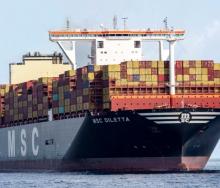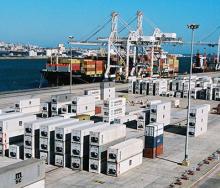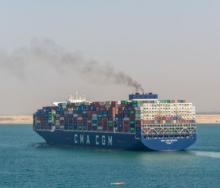As the United States prepared for the looming threat of a port strike, updates continued to emerge regarding the potential effects of 45 000 dock workers across 36 east and Gulf coast ports in the US downing tools from midnight on 30 September.
On the surface, such a strike would lead to significant congestion at affected ports, triggering a ripple effect throughout the supply chain, with delays and increased costs impacting the country’s consumer market and the broader logistics sector servicing the US.
The National Retail Federation estimates that the strike could cost the US economy as much as $4.5 billion per day, with serious consequences for supply chains already under strain from previous disruptions. Even if the strike only lasts one day, recovery is expected to take an additional three to five days.
The strike may result in empty shelves and delayed shipments of essential goods, including food and electronics, which is particularly concerning in the run-up to the holiday shopping season. Many businesses are already redirecting cargo to West Coast ports in anticipation of the delays.
Key issues under dispute include demands for a 77% wage increase over six years and restrictions on the automation of port operations. The union’s frustrations stem from a perceived disparity in wages compared to dock workers on the West Coast.
The International Longshoremen's Association (ILA) confirmed on Sunday that the strike is set to proceed, marking the first industrial action of this scale since 1977. The ILA claims that the United States Maritime Alliance (USMX), which represents port employers, refuses to acknowledge that its members have been subject to "wage subjugation" for at least 50 years.
White House spokesperson Robyn Patterson stated on Sunday evening that the Biden administration had attempted to intervene, urging USMX to swiftly reach a fair agreement with the ILA.
The ILA is pushing for wage increases of over 70% and assurances that port operators will not automate their facilities. Restrictions on the booking of refrigerated and dangerous cargo for US exports are already in place, according to reports from Asia Shipping Media.
Danish liner consultancy Sea-Intelligence has noted that carriers have already adjusted their operational schedules, bypassing some US east and Gulf coast ports, and diverting US-bound cargo to alternative ports, including some outside the US.
Several American ports have announced that they will accept their final inbound trains at 8 a.m. today, closing inbound truck gates by noon. By 1 p.m., all ships will have departed from the docks.
Shippers hoping for Canadian terminals to handle the excess cargo have been surprised to learn of a 72-hour partial strike by dockworkers in Montreal, the largest port on Canada’s eastern seaboard. This strike is expected to begin this morning and will reduce the port’s container terminal capacity by around 41%.
Beyond container shipping, Gulf Coast ports, particularly Houston and New Orleans, are responsible for handling 60-70% of US exports of crude oil, refined petroleum products, and natural gas, according to American supply chain platform Project44. A substantial portion of the petrochemical supply chain, including plastics and chemical feedstocks, also moves through these ports.
Approximately 60% of US grain and soybean exports are shipped through Gulf Coast ports, with New Orleans serving as a major hub for agricultural exports from the Midwest. Gulf Coast ports also manage about 25-30% of US exports of industrial machinery and heavy equipment, much of which is destined for Latin America and Europe.
Roughly 30-35% of US automotive imports and exports pass through east coast ports, especially vehicles and parts from Europe. Combined, east and Gulf coast ports handle around 25-30% of US imports of steel, cement, and other construction materials, primarily sourced from Europe and Latin America.













